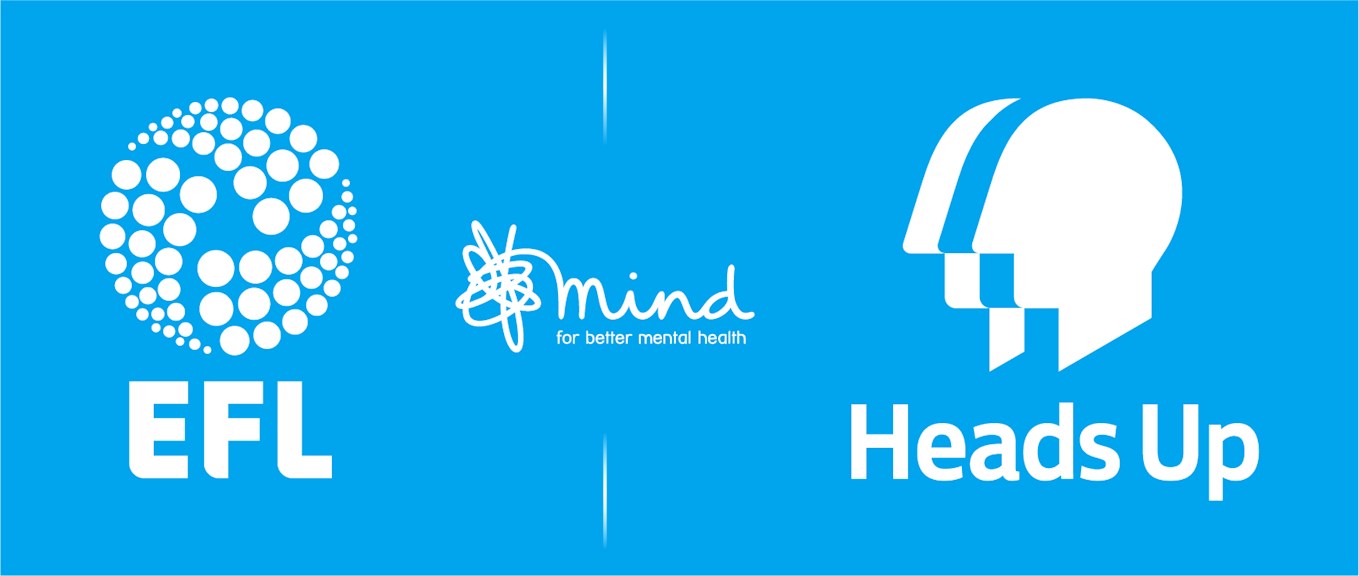Heads Up
Football is coming together this weekend with the ambition to kick off biggest ever conversationaround mental health, as new research shows just one in three football fans regularly talk about mental health with their friends.
For two weekends in February, every football team from across the Premier League, English Football League, The National League, The Barclays FA Women’s Super League, The FA Women’s Championship and the FA Women’s National League will dedicate their matches to Heads Up, a partnership between The FA and Heads Together.
Spearheaded by HRH The Duke of Cambridge, the season-long Heads Up campaign aims to harness the influence and popularity of football to normalise the conversation around mental health, working closely with charity partners Mind, CALM and Sporting Chance.
The ‘Heads Up Weekends’ will highlight the power of talking as a way to support one another and dispel stigma, with activity planned at fixtures across the men’s and women’s football calendar.
Over the weekends of February 8-9 and February 14-17, clubs of all levels will feature Heads Up branding across stadiums, programmes and player kit in a major unifying moment that aims to get the nation talking about mental health. Over the weekends, clubs will also be releasing their own short films featuring players talking about mental health and showcasing the work they do to improve mental health in their communities.
It comes as a new Heads Up survey of 2,014 football fans, carried out by Censuswide, showed:
- Football is the number one topic of conversation (75%) between fans and their friends
- However, only one in three (34%) football fans regularly talk about mental health with their friends – with male fans much less likely to do so (27% of male respondents, compared to 47% of women). Overall, male football fans were over three times more likely to talk about football than mental health with their friends (83%, compared with 27%).
- Meanwhile, 40% of football fans find it easiest to talk about their mental health while busy with other activities – such as while walking or running, driving, going to the pub, or watching sports with a friend. Meanwhile 32% would find it easiest to have a face to face conversation at home with no distractions.
Men’s and women’s football is now coming together to call on everyone to talk more about mental health in order to normalise the subject and help remove the stigma that prevents many –particularly men - from speaking out.
In a message included in every matchday programme over the Heads Up Weekends, HRH The Duke of Cambridge wrote:
“Imagine if we talked about mental health as much as we talk about football…. Many of us won’t go a day without talking about it. And whatever team we support, every single fan, player and manager has one thing in common – we all have mental health, in the same way that we all have physical health. And we will all face ups and downs in life which will affect it. It’s time we start taking our mental fitness as seriously as we do our physical fitness, and that starts with talking.”
Chairman of the EFL, Rick Parry, said:
“Through our ground-breaking partnership with Mind, the EFL and its Clubs have worked hard to improve the approach to mental health in football and wider society, over the past two seasons. Football provides a platform like no other to raise awareness and tackle society’s biggest issues and we’re proud to offer our support to the Heads Up campaign, as football comes together to further encourage the conversation around mental health. I look forward to seeing the impact over the two weekends.”

